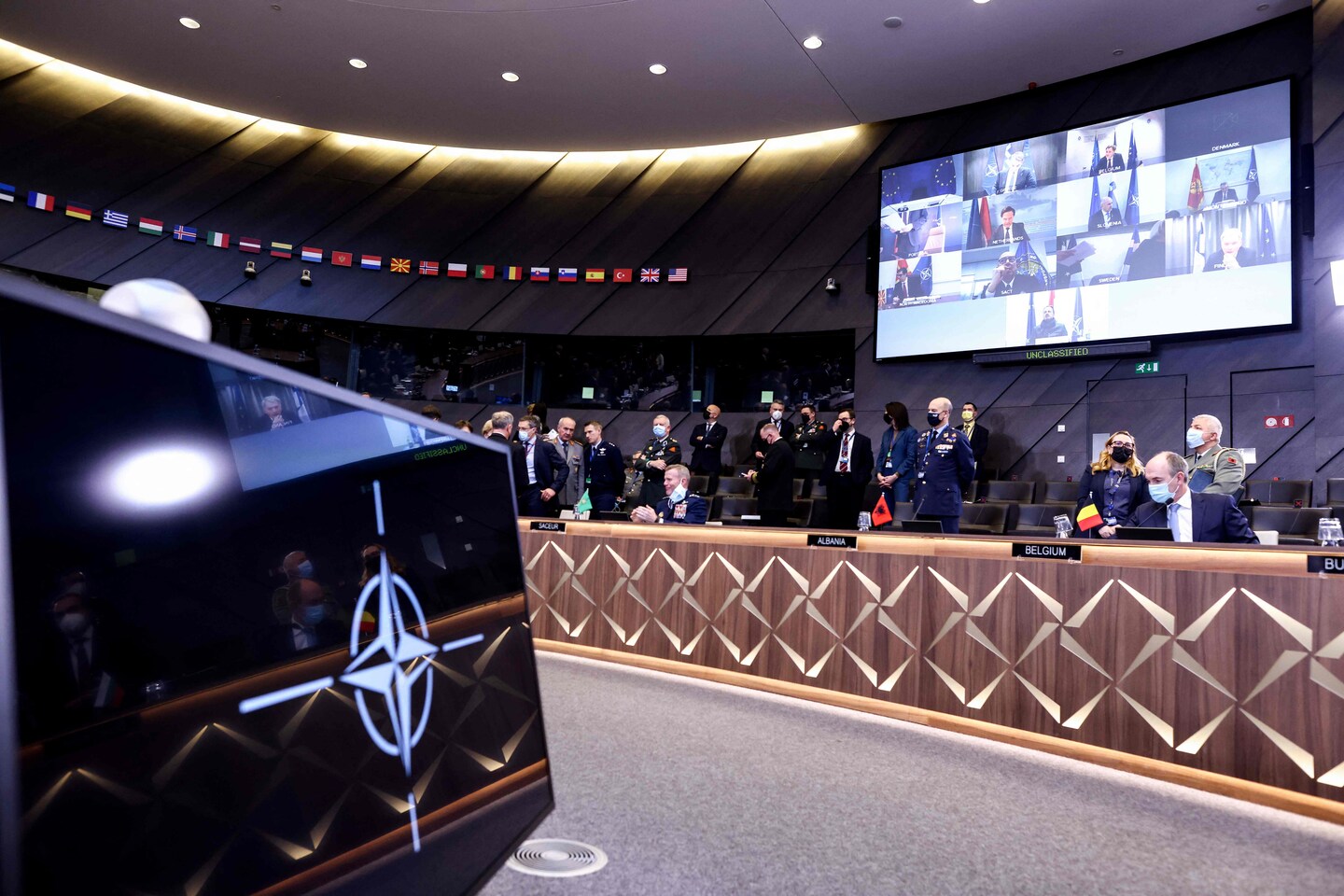Tucker Carlson goes full blame-America on Russia’s Ukraine invasion

To be clear, the idea that NATO expansion into countries such as Ukraine is provocative and might even be a bad idea is not a fringe position; it has long been espoused, dating to prominent, establishment foreign policy voices in the 1990s. But Carlson took things a good few conspiratorial steps further, arguing that the push for NATO was deliberately intended to provoke this war.
Carlson said it was “obvious” that “getting Ukraine to join NATO was the key to inciting war with Russia.” He noted that Vice President Harris was sent to Europe as Russia massed troops on Ukraine’s borders and that she said, “I appreciate and admire President [Volodymyr] Zelensky’s desire to join NATO.”
“‘Up yours, Vladimir Putin,’” Carlson summarized. “‘Go ahead and invade Ukraine.’ And of course Vladimir Putin did that just days later. So the invasion was no surprise to the Biden administration. They knew that would happen. That was the point of the exercise.”
Carlson then turned to his favored rhetorical trick of treating his conspiratorial supposition — that the United States wanted this war — as established fact as he pivoted to related questions: “Why in the world would the United States intentionally seek war with Russia? How could we possibly benefit from that war?”
A version of Carlson’s effort to blame the West — and by extension, President Biden — has been around for a while now, in varying versions. Conservative provocateur Candace Owens tweeted recently that “WE are at fault” for Russia’s invasion, because of NATO expansion. Other Republicans have pointed in that direction as well. Still others, such as Sen. Josh Hawley (R-Mo.), have not gone that far but have argued for backing off from NATO expansion to reduce tensions.
But there are a few problems with the attempt to shoehorn this valid concern into the idea that the Biden administration is to blame — or even deliberately fomented war.
One is that Putin has made it pretty clear that this isn’t just — or even necessarily primarily — about NATO. Supporters of this view often point to Putin’s Feb. 21 speech laying out his justifications, which included NATO. But in that speech, Putin labeled Ukraine an illegitimate country on land that he views as rightfully Russian territory. He echoed that in 2008 talks with President George W. Bush. Putin’s aggression in Georgia in 2008 and Crimea in 2014 coincided with moves to bring Georgia and Ukraine into the Western fold, but there’s much more that undergirds his case for war.
The other is that supporting Ukraine’s right to pursue membership in NATO has consistently been U.S. policy. Carlson isolated Harris’s visit to the Munich Security Conference, but this has been a position across multiple administrations of both parties. However well advised that policy was, it was the long-standing policy. And to shelve it in the face of Russian aggression would be, in the truest sense, capitulation.
Even if you believe it might have averted this war, what message would it send about Russia’s ability to throw its weight around? It’s massing of troops on Ukraine’s borders would have earned an immediate payoff. Even if Harris had merely declined to restate U.S. support for Ukraine’s right to pursue NATO membership, that would have been a telling omission. (Conservative Washington Post columnist Henry Olsen, for one, has argued that Hawley’s posture was correct, even though he is “wrong about whether the United States should say so publicly.”)
(Carlson, for what it’s worth, oversimplified Harris’s statement as having “encouraged Ukraine to become a member of NATO.” As with past administrations, she described U.S. policy as supporting Ukraine’s desire to join NATO — a key nuance, diplomatically.)
In January, former Trump and Bush administration Russia expert Fiona Hill offered a worthwhile and nuanced view on this in the run-up to Russia’s invasion in an essay for the New York Times:
To be sure, Russia does have some legitimate security concerns, and European security arrangements could certainly do with fresh thinking and refurbishment after 30 years. … But a further Russian invasion of Ukraine and Ukraine’s dismemberment and neutralization cannot be an issue for U.S.-Russian negotiation nor a line item in European security. Ultimately, the United States needs to show Mr. Putin that he will face global resistance and Mr. Putin’s aggression will put Russia’s political and economic relationships at risk far beyond Europe.
Yet negotiating over NATO in the face of Russian aggression — whether explicitly or by scaling back the U.S. public commitment to the alliance’s right to determine its membership — is effectively what Carlson suggests we should have done. It’s one thing to argue this policy has been a bad one (Carlson has long been a NATO skeptic); it’s another to cast Harris’s restating of long-standing U.S. policy as some kind of novel provocation — even a deliberate one with an intended consequence.
But there must be a way to blame the Biden administration for this situation, apparently, even if it means shifting the blame away from Putin and implicitly arguing for his appeasement.






